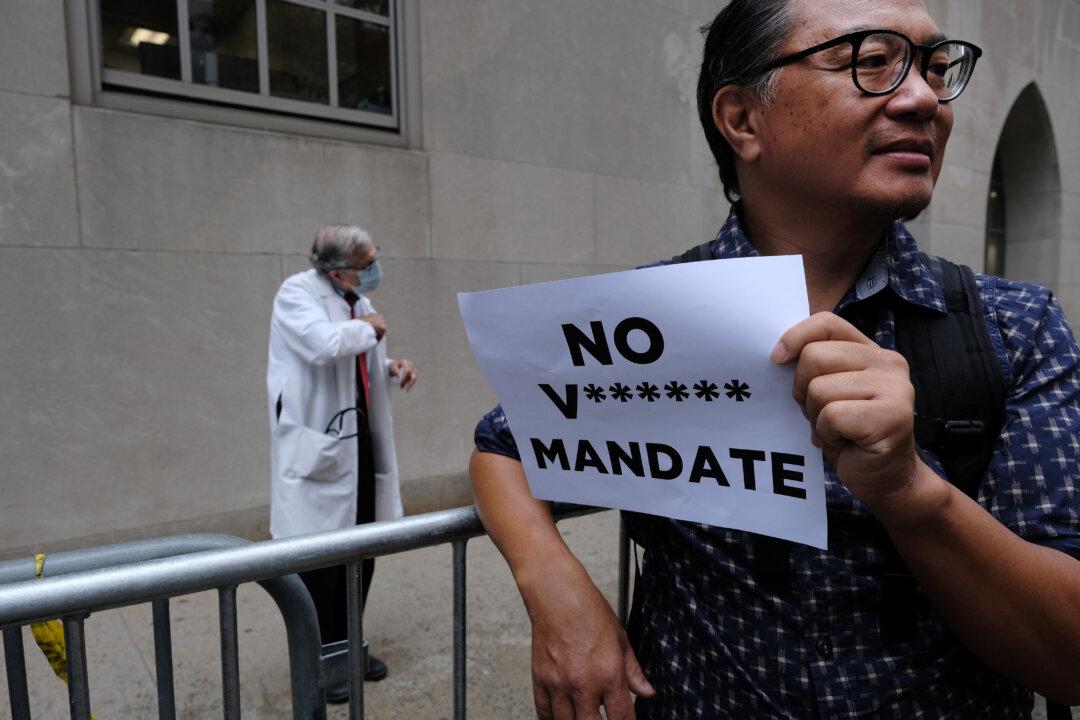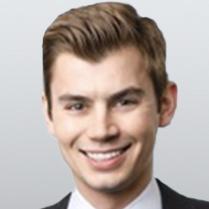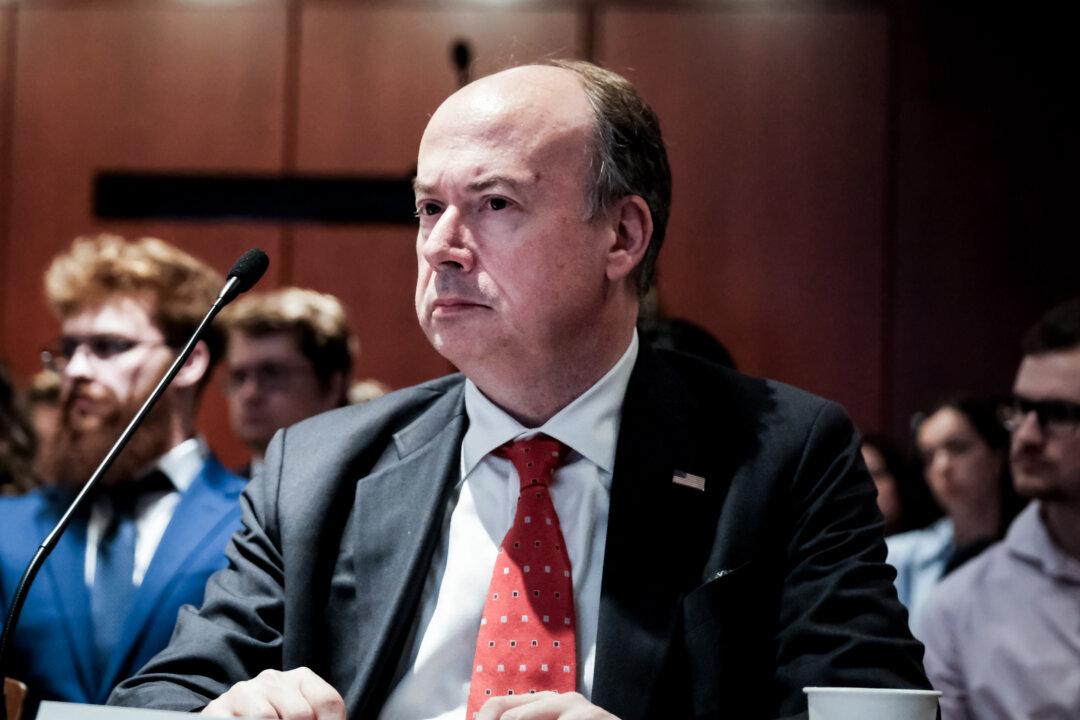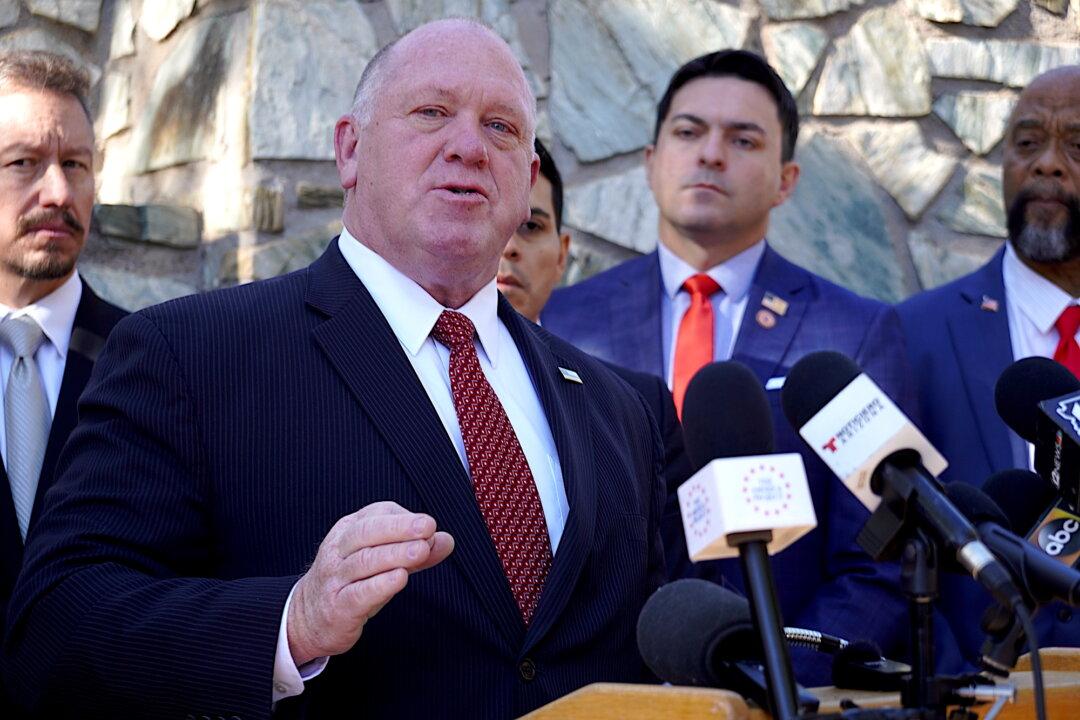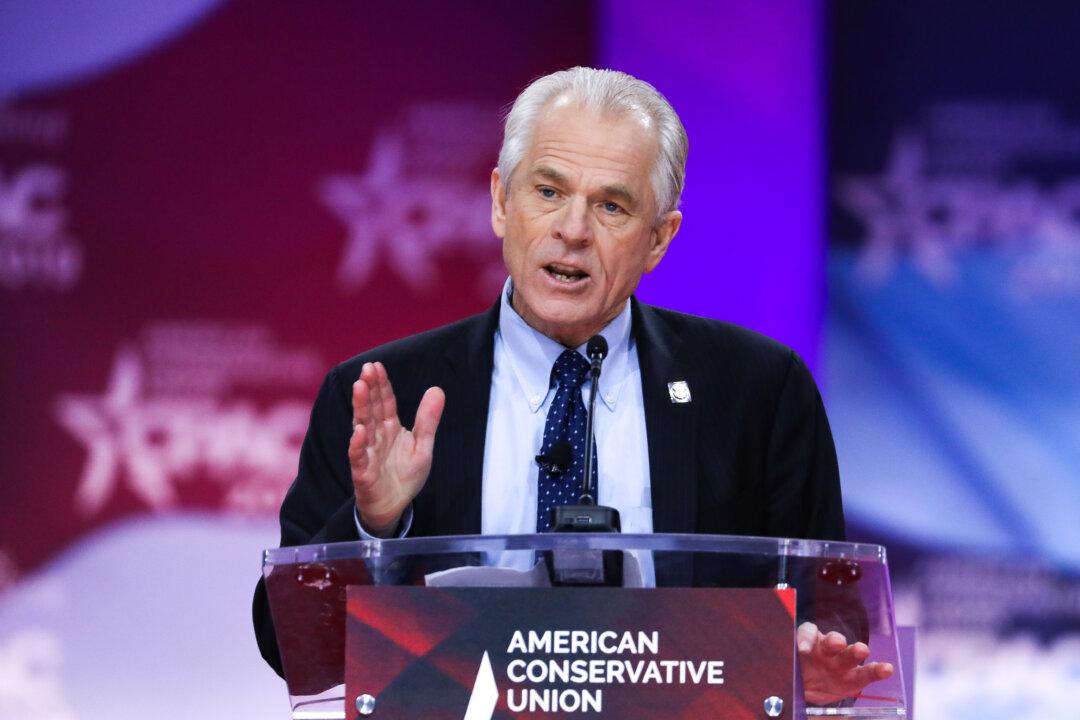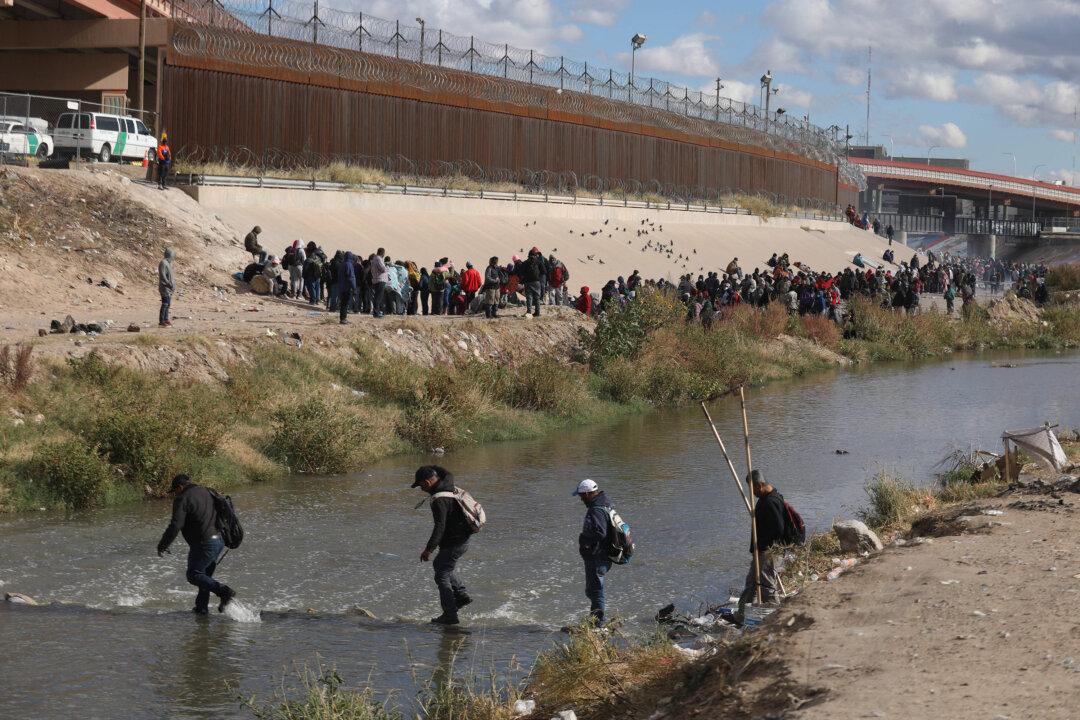While there is technically no federal COVID-19 vaccine mandate in the United States, widespread vaccine mandates among public and private institutions have formed a “de facto…nationwide mandate” that is “creating a two-tier society” in which the unvaccinated are systematically ostracized, warns economist and author Jim Rickards.
“Whether you had [COVID-19] or not, need [the vaccine] or not, young or not, vulnerable or not, you have to take it, or you’re going to be pushed to the margins of society,” Rickards, author of “The New Great Depression: Winners and Losers in a Post-Pandemic World,” told The Epoch Times.
